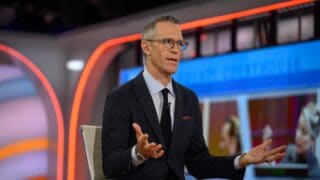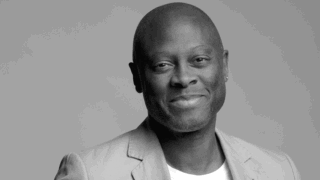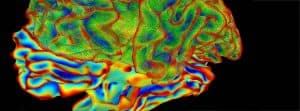The Lavin Agency Speakers Bureau
A speakers bureau that represents the best original thinkers,
writers, and doers for speaking engagements.
A speakers bureau that represents the best original thinkers,
writers, and doers for speaking engagements.
To build powerful teams, you need to harness the power of a shared team identity.
One of the biggest misconceptions we have about our identity is that it’s stable—when in reality, it’s constantly changing to reflect the groups we belong to. In his award-winning book The Power of Us—a blend of cutting-edge research in psychology and neuroscience—NYU Professor Jay Van Bavel reveals how our identities are powerfully influenced by the groups we’re part of, and why this knowledge is especially crucial during the turbulent times we’re living in. Bringing his fascinating research to life in engaging, practical talks, Jay shows us how to harness the power of shared identities in today’s world: helping us lead more effectively, boost productivity and collaboration, overcome our biases, and inspire real change, both personally and societally.
“The Power of Us is a fascinating journey into the science of identity. It is a practical, entertaining and, above all, vital guide to human behavior.”— Charles Duhigg, bestselling author of The Power Of Habit
Understanding how identity works allows us to take control of who we are and who we want to be. A Professor of Psychology and Neural Science at New York University, Jay Van Bavel examines the psychology of topics like intergroup bias, group identity, team performance, decision-making, and cooperation. In his book The Power of Us (co-written with Dominic Packer), Jay dives deeper into the science of identity. Through a mix of storytelling, interaction, and cutting-edge research, Jay reveals how our sense of self—our feelings, beliefs, and behaviors—is derived from our social groups, challenging society’s dominant assumptions about power and influence. Understanding these topics gives us the necessary tools to build smarter, more collaborative groups and teams.
In an age where public life is characterized by polarized battles and impossible conflicts, Jay offers a timely diagnosis for our organizations and society, as well as a path forward towards collaboration, unity, and success. It is just as applicable for CEOs and leaders making sense of the modern workplace as it is for politicians and government organizations tackling the spread of misinformation online. Charles Duhigg, bestselling author of The Power of Habit, writes, “If you’ve ever struggled to understand why people join cults or mindlessly conform — or, have wondered how to build great teams and influence better choices, this is the book you need.” As brilliant as it is entertaining, The Power of Us offers a revolutionary lens for seeing and understanding ourselves and each other. It won the APA’s 2022 William James Book Award, the top book award for the entire field of psychology.
Jay was the recipient of the Golden Dozen Teaching Award at NYU, and has won several accolades for his research on how collective concerns shape the brain and behavior. His award-winning research has appeared in The Harvard Business Review, The New York Times, Wall Street Journal, and Scientific American, and has been cited in both the U.S. Supreme Court and Senate. Jay has presented his work for conferences such as TEDx and the World Science Festival; for Fortune 500 organizations such as Uber and Amazon; and for the leading Psychology Departments and Business Schools around the country, including Harvard, Columbia, and Yale. To date, he has published over 150 academic papers, a mentoring column for Science Magazine, and regularly appears on international media such as NBC, CNN, PBS, NPR, and Bloomberg News.
Amazing presentation for leaders and anyone really that works in a team setting. Amazing, amazing, amazing!
APEGAIt was a pleasure to have Jay Van Bavel speak at our event. Jay was fantastic during the preparation meeting and worked closely with us on the content, ensuring everything was perfectly tailored to our audience. The attendees were highly engaged, and Jay's message was clear and impactful.
Inter-American Development Bank
Author of The Loop: How A.I. is Creating a World without Choices and How to Fight Back NBC News Technology Correspondent Former Editor-in-Chief of Popular Science Magazine AI Strategic Advisor to Fortune 500 Companies

Founding President, PlusCo Venture Studio Former Chief Creative and Innovation Officer, Cossette

Speaker on AI and Education Executive Director of the Stanford Accelerator for Learning

Author, Today Was Fun: A Book About Work (Seriously) Workplace Culture Expert Senior Advisor, SYPartners

Harvard Kennedy School Professor Author, How to Disagree Better

Harvard Business School Behavioral Science Professor "40 Under 40 MBA Professor" Author of TALK: The Science of Conversation and the Art of Being Ourselves

Author, Today Was Fun: A Book About Work (Seriously) Workplace Culture Expert Senior Advisor, SYPartners

Author, Lucky by Design Wharton Professor of Business Economics and Public Policy Forbes 30 Under 30 in Law and Policy

Harvard Business School Behavioral Science Professor "40 Under 40 MBA Professor" Author of TALK: The Science of Conversation and the Art of Being Ourselves

#1 New York Times Bestselling Author of Grit and Situated | Pioneering Researcher on Grit, Perseverance, and the Science of Success

Nobel Prize Winner | 3rd Most Cited Economist in the World | Bestselling Co-Author of Why Nations Fail and Power and Progress

Harvard Business School Behavioral Science Professor | "40 Under 40 MBA Professor" | Author of TALK: The Science of Conversation and the Art of Being Ourselves

#1 New York Times Bestselling Co-Author of Abundance | Host of thePlain English Podcast | Founder of the Substack Derek Thompson

#1 New York Times Bestselling Author of How the Word Is Passed and Above Ground | The Atlantic Staff Writer


In an era increasingly defined by AI tools like ChatGPT, the need for human connection and collaboration has never been more crucial. In this talk, award-winning author and psychologist Jay Van Bavel explores what AI will do to our sense of shared identity and teamwork, and how we can leverage its abilities to achieve our maximum potential together.
While AI promises to enhance productivity and optimize content, it could also reinforce discriminatory biases and spread misinformation. In this brilliant and accessible talk, Jay explores how algorithms are already polarizing us and how AI could contribute to the problem—and offers strategies to prevent this by fostering unity, collaboration, and shared identities. By understanding these dynamics, we can leverage this technology to strengthen rather than divide us.


